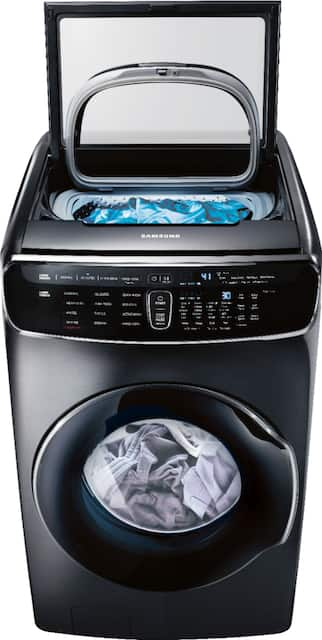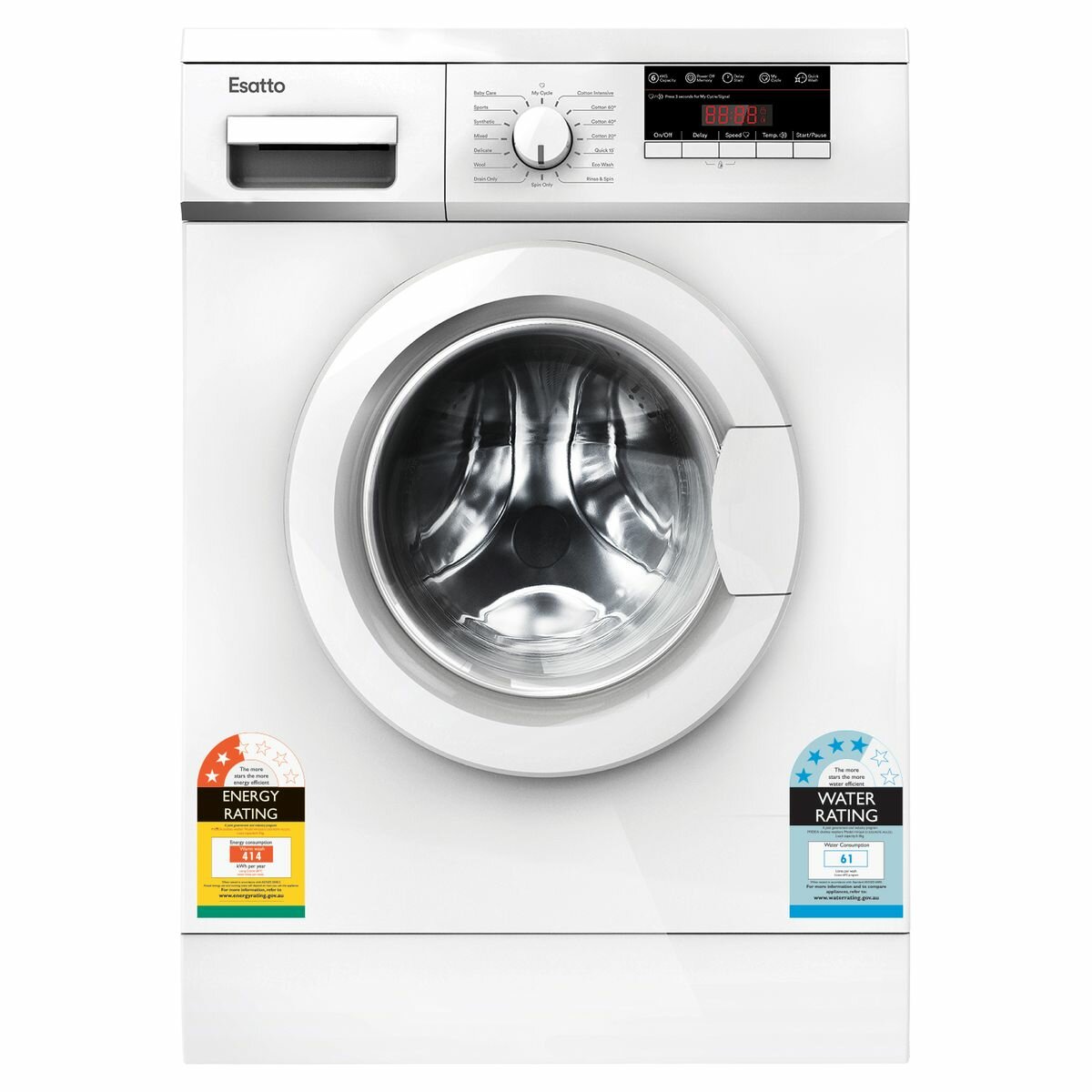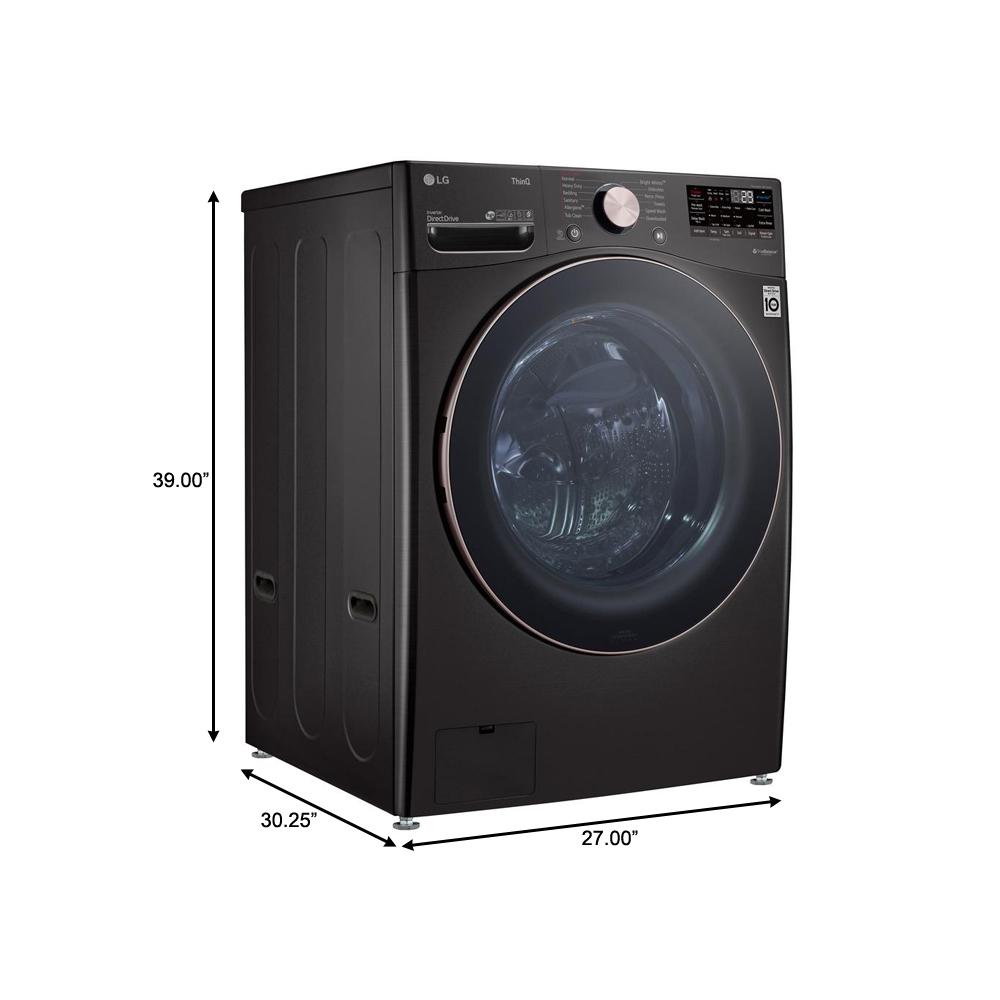Samsung’s FlexWash; Washer provides the ultimate washing flexibility, with two separately controlled washers in the same unit, so you can wash different types of laundry at the same time.
FlexWash;
One machine. Two washers.
6.0 cu. ft. total capacity
5.0 + 1.0 cu. ft. upper and lower washers mean fewer washes, less time in the laundry room.
Super Speed (Lower Washer)
Wash a full load in as little as 30 minutes – 45% faster.*
Steam Wash
Uses the power of steam to remove stains without pre-treatment.
Wi-Fi Connectivity
Remotely monitor remaining cycle time, receive alerts when the cycle is complete, and schedule cycles.
PowerFoam;
Optimizes your HE detergent performance to deeply penetrate and cleanse fabric.
VRT Plus; Technology
Reduces vibration 40% more than standard VRT; for quiet washing.*
*Based on Owens Corning sounds power testing.
Self Clean
Keeps your laundry drum fresh and odor-free.
Smart Care
Troubleshoot Straight from your Smartphone.
Swirl Drum Design
Smaller holes in the washer drum help prevent fabric from getting caught and damaged.
EZ Drawer Dispenser
Conveniently placed detergent drawer with ball bearing glides.
Standard 1 water line hookup, do not require hire additional plumbing service.
Stainless Steel Pulsator
Prevents rusting and staining to make the washer last longer.
Direct Drive Motor
Works without belts or gears, making the washer quieter and more durable.






by Jenae
By far this is the best washer I have used to date. The smaller load is perfect for a small load of baby clothes or even just my under garments. I think I have fell in love with the silent wash capability. You can barely hear that it is even on. I love this machine. It is huge, but so worth the purchase
by Coolesnce
Loving my new Samsung washer. The flex wash feature was a must for me. When I want to wash just my workout clothes or a smaller load when I don’t have a full load to wash. Highly recommend.
by Javaid
Over all I had a great experience , delivery was in time and flawless. Courteous and friendly crew. They walked me through this to operate it.
by Chris
This is a beautiful washer. I love how huge it is. It holds very large loads.
by John
very good price and quality. i recommended it for my friends.
by Lulu
love it, it is very easy to use. No noise is heard. I like the internet connection . I can’t say the same about the dryer, I can’t establish a connection with my cell phone.
by Tanya
Delivery and installing team is amazing. They are very thorough at the job. I’m very satisfied with my product and I will definately comeback to best buy for other home appliances. Love my washer, I have to worry about waiting to get a big load of stuffs to wash. If I just have a small load, I’ll just throw it in the top washer and it will be clean. Very convenient.